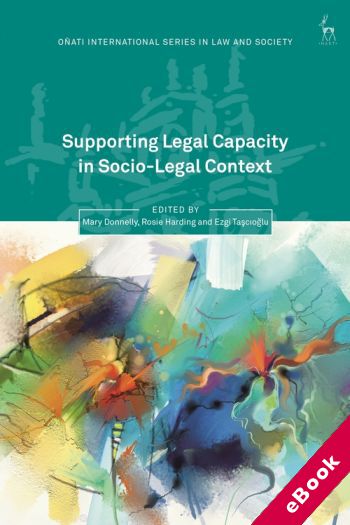
The device(s) you use to access the eBook content must be authorized with an Adobe ID before you download the product otherwise it will fail to register correctly.
For further information see https://www.wildy.com/ebook-formats
Once the order is confirmed an automated e-mail will be sent to you to allow you to download the eBook.
All eBooks are supplied firm sale and cannot be returned. If you believe there is a fault with your eBook then contact us on ebooks@wildy.com and we will help in resolving the issue. This does not affect your statutory rights.
This collection brings together leading international socio-legal and medico-legal scholars to explore the dilemma of how to support legal capacity in theory and practice. Traditionally, decisions for persons found to lack capacity are made by others, generally without reference to the person, and this applies especially to those with cognitive and psycho-social disabilities. This book examines the difficulties in establishing effective and deliverable supported decision-making, concluding that approaches to capacity need to be informed by a grounded understanding of how it operates in 'real life' contexts.
The book focuses on the UN Convention on the Rights of Persons with Disabilities (CRPD), which recognises the equal right to legal capacity of people with disabilities and requires States Parties to provide support for the exercise of this right. However, 10 years after the CRPD came into force, the shift to legal frameworks for supported decision-making remains at best only partial.
With 16 chapters written by contributors from the UK, Canada, Finland, India, Ireland, Spain, Sweden, and Turkey, the collection takes a comparative and interdisciplinary approach. Many of the contributors have been directly involved in law reform processes in their home jurisdictions, and thus can combine both academic expertise and practical, grounded awareness of the challenges of legal change.